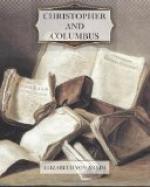Yet the hope they all felt was not realized, and the second afternoon was almost exactly like the first. Germans came and clustered round the Annas, and made friendly though cautious advances to Mr. Twist. The ones who had been there the first day came again and brought others with them worse than themselves, and they seemed more at home than ever, and the air was full of rolling r’s—among them, Mr. Twist was unable to deny, being the r’s of his blessed Annas. But theirs were such little r’s, he told himself. They rolled, it is true, but with how sweet a rolling. While as for these other people—confound it all, the place might really have been, from the sounds that were filling it, a Conditorei Unter den Linden.
All his doubts and anxieties flocked back on him as time passed and no Americans appeared. Americans. How precious. How clean, and straight, and admirable. Actually he had sometimes, he remembered, thought they weren’t. What an aberration. Actually he had been, he remembered, impatient with them when first he came back from France. What folly. Americans. The very word was refreshing, was like clear water on a thirsty day. One American, even one, coming in that afternoon would have seemed to Mr. Twist a godsend, a purifier, an emollient—like some blessed unction dropped from above.
But none appeared; not even Mr. Ridding.
At six o’clock it was quite dark, and obviously too late to go on hoping. The days in California end abruptly. The sun goes down, and close on its heels comes night. In the tea-room the charmingly shaded lights had been turned on some time, and Mr. Twist, watching from the partly open door of his office, waited impatiently for the guests to begin to thin out. But they didn’t. They took no notice of the signals of lateness, the lights turned on, the stars outside growing bright in the surrounding blackness.
Mr. Twist watched angrily. He had been driven into his office by the disconcerting and incomprehensible overtures of Mr. Wangelbecker, and had sat there watching in growing exasperation ever since. When six struck and nobody showed the least sign of going away he could bear it no longer, and touched the little muffled electric bell that connected him to Mrs. Bilton in what Anna-Felicitas called a mystical union—Anna II. was really excessively tactless; she had said this to Mrs. Bilton in his presence, and then enlarged on unions, mystical and otherwise, with an embarrassing abundance of imagery—by buzzing gently against her knee from the leg of the desk.
She laid down her pen, as though she had just finished adding up a column, and went to him.
“Now don’t talk,” said Mr. Twist, putting up an irritable hand directly she came in.
Mrs. Bilton looked at him in much surprise. “Talk, Mr. Twist?” she repeated. “Why now, as though—”




